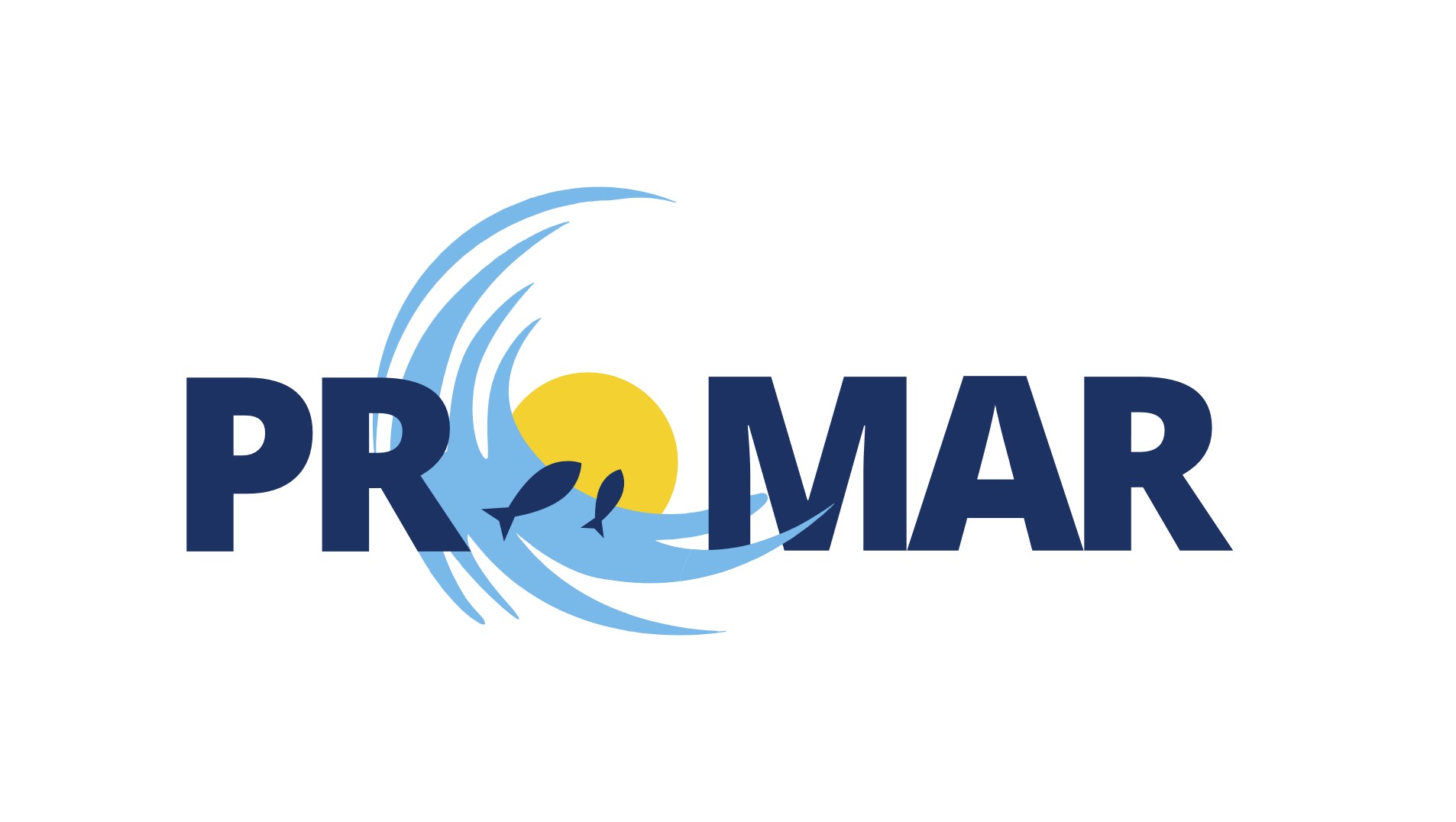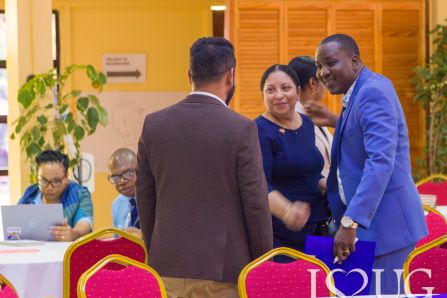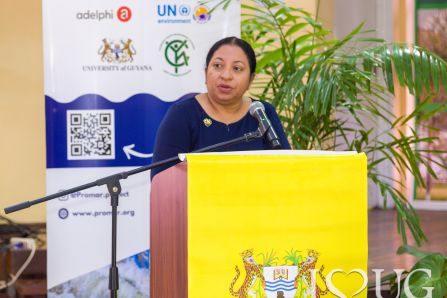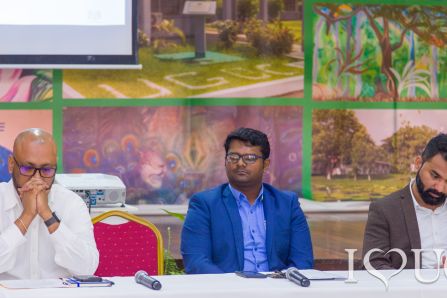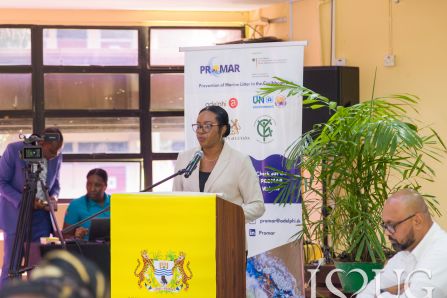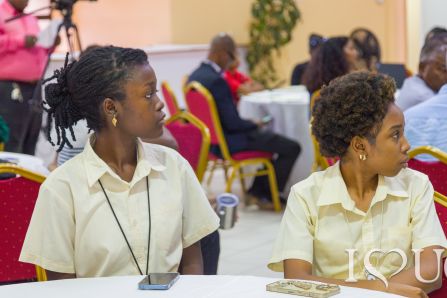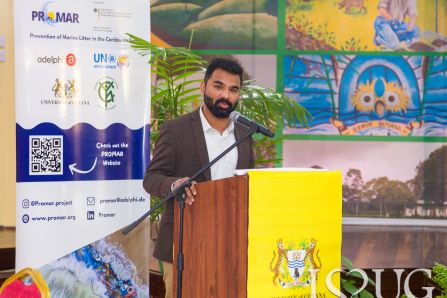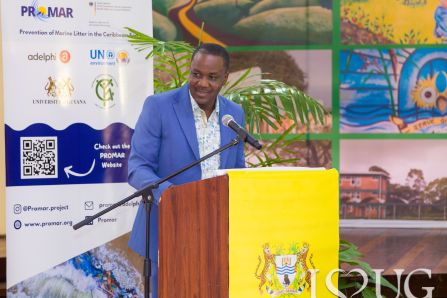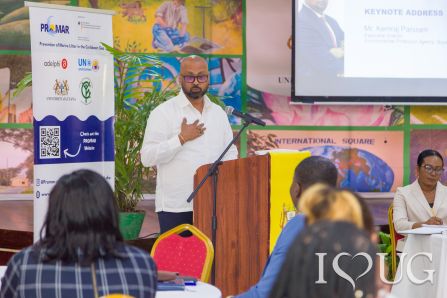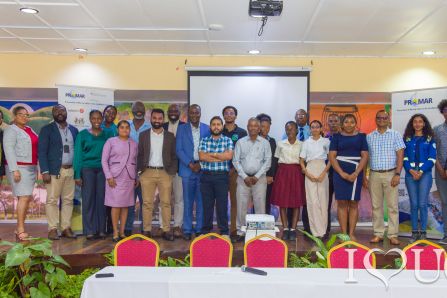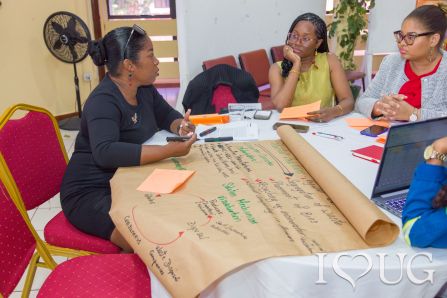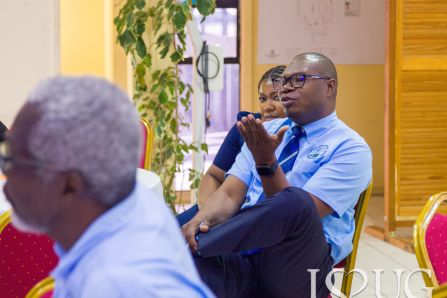National Dialogue on Marine Litter Prevention and Plastic Waste Management in Guyana
Guyana Hosts National Dialogue on Marine Litter and Plastic Waste Management
The University of Guyana (UG) hosted a pivotal National Dialogue on Marine Litter Prevention and Plastic Waste Management, drawing together over 40 stakeholders from across Guyana and beyond. This high-level event, part of the Prevention of Marine Litter in the Caribbean Sea (PROMAR) project, was organized in collaboration with Germany’s Adelphi and the Cartagena Convention Secretariat of the United Nations Environment Programme (UNEP).
Held at UG’s Turkeyen Campus, the dialogue welcomed voices from government agencies, academia, civil society, private industry, youth organizations, and international development partners, all united by a shared commitment to addressing plastic pollution in the Caribbean.
Strengthening National Commitment
The event opened with inspiring remarks from Ms. Linda Johnson-Bhola, Dean of UG’s Faculty of Earth and Environmental Sciences (FEES), and Professor Temitope Oyedotun, PROMAR Project Lead for Guyana. Both highlighted Guyana’s critical role in the region’s collective response to marine litter.
Vice Chancellor Professor Paloma Mohamed delivered an address, reaffirming UG’s dedication to environmental leadership. She challenged FEES to drive internal reforms through waste segregation, enhanced recycling practices, and the promotion of sustainability across campus. Her address acknowledged the dedicated efforts of the PROMAR team and applauded the university’s international partners.
Addressing Urgent Environmental Challenges
The keynote speaker, Mr. Kemraj Parsram, Executive Director of the Environmental Protection Agency (EPA), spotlighted the urgent need to improve public awareness and modernize waste management systems in Guyana. He called for stronger public-private partnerships and noted that despite commendable efforts, systemic weaknesses persist.
A sobering statistic emerged during the session: Guyana ranks sixth globally in per capita plastic waste leakage into the ocean, with an average of 1.59 kg per person annually—a clear call to action for all stakeholders.
Global Perspectives and Practical Solutions
Mr. Amarnath Munnolimath, Head of Green and Circular Economy at Adelphi, shared global approaches to reducing marine litter, including innovative models from Europe and Latin America. These examples laid the groundwork for a panel discussion led by Dean Johnson-Bhola. The panel featured Mr. Parsram, Mr. Munnolimath, and Mr. Singh, who explored obstacles such as illegal dumping, underdeveloped recycling infrastructure, and delays in enforcing Guyana’s National Waste Management Strategy (2013–2024).
A Collaborative Path Forward
The afternoon’s interactive sessions, led by Mr. Munnolimath and Professor Oyedotun, encouraged hands-on collaboration. Drawing from international frameworks like the EU Marine Strategy Framework Directive and Circular Economy Action Plan, participants identified policy gaps and co-designed practical interventions.
Key proposals included:
Establishing Producer Responsibility Organisations (PROs)
Piloting Extended Producer Responsibility (EPR) schemes
Expanding the use of citizen science tools like Litta-Report
Enhancing coordination between municipal authorities and the EPA
The dialogue underscored a shared ambition to transition Guyana towards a circular economy, one that values reuse, reduces waste at the source, and ensures producers are held accountable.
